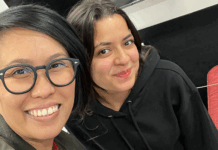Personal boundaries are the limits and rules we set for ourselves within relationships. A person with healthy boundaries can say “no” to others when they want to, but they are also comfortable opening themselves up to intimacy and close relationships.
We’ve put together some tips on how to use effective healthy boundaries with others.
Know your limits.
Before becoming involved in a situation, know what’s acceptable and what isn’t. It’s best to be as specific as possible, or you might fall into the trap of giving a little bit more, over and over, until you’ve given far too much.
Know your values.
Every person’s limits are different, and they’re often determined by their personal values. For example, if you value family above all else, this might lead to stricter limits on how late you will stay at work or study, away from family. Know what’s most important to you, and protect it.
Listen to your emotions.
If you notice feelings of discomfort or resentment, don’t bury them. Try to understand what your feelings are telling you. Resentment, for example, can often be traced to feelings of being taken advantage of.
Have self-respect.
If you always give in to others, ask if you are showing as much respect to yourself as you show to others. Boundaries that are too open might be due to misguided attempts to be liked by elevating other people’s needs above one’s own.
Have respect for others.
Be sure that your actions are not self-serving, at the expense of others. Interactions should not be about winning, or taking as much as possible. Instead, consider what’s fair to everyone, given the setting and relationship. You might ‘win’, but at the cost of a relationship’s long-term health.
Be assertive.
When you know it’s time to set a boundary, don’t be shy. Say ‘no’ respectfully, but without ambiguity. If you can make a compromise while respecting your own boundaries, try it. This is a good way to soften the “no”, while showing respect to everyone involved.
Consider the long view.
Some days you will give more than you take, and other days you will take more than you give. Be willing to take a longer view of relationships, when appropriate. But if you’re always the one who’s giving or taking, there might be a problem.
Safer Community
This article was written by Safer Community. If you need help addressing personal boundaries in your life, reach out to us! If you have experienced or witnessed unacceptable behaviour either on or off-campus, we can also assist you. Contact Safer Community for advice and referrals today.














